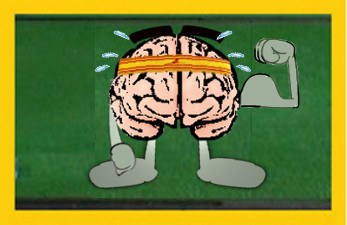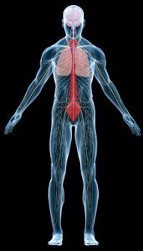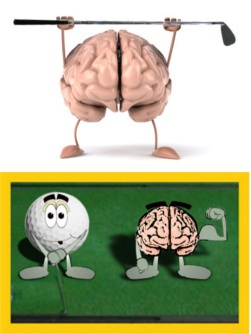
Many non-golfers scoff that the game demands very little physical prowess or exertion, and therefore provides minimal health benefits. You spend most of the round in a cart, occasionally stopping to hit a stationary ball while standing still, they argue. How healthful can it be?
As it turns out, golf can boost your strength, flexibility, mental acuity and mood. It may even help you live longer.
Not bad for a supposedly non-athletic pursuit, huh?
To be sure, walking the course delivers more benefits than riding a cart. However, riders enjoy positive effects too. The simple act of swinging the club repeatedly – including practice swings as well as hitting shots – improves flexibility, circulation, balance, posture, lower-back strength and muscle tone. In fact, golf can strengthen the upper and lower body as well as your core (abdominal) muscles.
Compared with their non-golfing counterparts, golfers display better hand-eye coordination, range of motion and mobility. Those who suffer from arthritis or other pain may find relief in the golf swing, which gently works the muscles and joints.
Golf can impact your well-being between the ears, too. By forcing you to think strategically, control your emotions, make countless decisions and master very specific skills, golf may enhance your self-confidence, creativity and visual memory while helping you adapt more effectively to change.
And while every golfer is familiar with the game's frustrating aspects, playing can actually improve your overall mood – on and off the course. Playing (especially if you walk) gives your body a jolt of feel-good hormones, called endorphins. Time spent in the sun helps your body produce vitamin D, which among other functions regulates the immune system. In general, folks who exercise regularly enjoy a more positive outlook on life.
Perhaps most amazing of all, a study by Sweden's Karolinska Institutet found a 40% lower death rate for golfers vs. non-golfers of the same age, sex and socioeconomic range. Translated, that's five years added to your life span.

Golf is Good for the Body, Mind, and Spirit
Even as golfers, we have to admit that there are some downsides to this game. For one thing, it takes a long time to play 18-holes. In a world that keeps moving faster and faster, golf is a slow game. Also, it can be quite expensive, it can be hard to find an available tee time on a sunny Saturday morning, and the rules can be a little complicated. Plus, all those previous points say nothing about the difficulty of the game. Golf is hard, and many beginning golfers give up long before they see their skills develop.
So, why is golf so popular? Simple – for each of those downsides, there are several more upsides to consider. Millions of golfers love the game despite its faults, and it is pretty easy to see why, when you take a closer look. In this article, we are going to highlight some of the many benefits and advantages of playing golf. Experienced golfers will already know most of these points to be true, even if they have not thought about them specifically in this way. If you are new to the game, or if you are considering getting started in golf, we hope this article will provide you with the necessary motivation to head out to your local driving range or golf course.
It does need to be said, before we get started, that not all of the points we are going to make in this article are going to apply to all golfers. These are points which are based, at least in part, on opinion rather than fact. You may see some of our points as benefits of the game, while you disagree with others. That's okay, of course. The idea here is to get you thinking about the various motivations you may have for being a golfer. Even if you only agree with a few of our points, that may be enough to encourage you to head out to the course time after time.
It should also be said that it would be smart to take a few minutes to think about this discussion for yourself. What do you want to get out of the game? If you are already a golfer, which parts of the game do you enjoy, and which do you wish could be changed? You are spending your time and money on this game as a golfer, so you should make the most of it. By thinking about what you love about golf, you can do your best to put yourself in the right positions to enjoy those elements more frequently. As one example, a player who loves the peaceful, laid-back nature of the game could avoid the course on busy weekends, when the tee sheet is packed and the parking lot is full.
Without any further delay, let's get into the discussion of how golf can be good for the body, the mind, and the spirit.

Can Golf Benefit Your Body?
When you think about physical activities that can benefit your body, golf is probably not the first thing that comes to mind. This game does not provide exercise in a traditional sense, as you aren't going to be jumping, running, or lifting weights. The game itself is pretty tame as far as physical demands are concerned, so you might think that it wouldn't do your body much good.
That is not necessarily the case, however. Here's the thing – we live in an increasingly sedentary world, where many people get almost no form of physical exercise each day. It is common for people to sit nearly all day long, with those sessions of sitting only interrupted as they walk to a different place to sit. So, when you compare golf to the alternative of sitting around, it starts to make sense that it could benefit your body. Is playing a round of golf in four hours the same as running a marathon over that same period of time? No, of course not. But that does not mean it's without merit.
Please take a look at the list below, which highlights a few of the possible physical benefits you may enjoy as a golfer. Of course, before you decide to play golf or engage in any other physical activity, you should always make sure it's okay with your doctor.
- Endurance gained through walking the course. If you decide to walk the course on a regular basis, rather than riding in a cart, it is possible that you will gain some degree of physical endurance. Again, this is not going to turn you into a distance runner, but walking a full 18-holes is challenging in its own right. Playing a round of golf on a full-size course is going to mean walking usually somewhere in the 4 – 6-mile range. Given the fact that most courses have some degree of elevation change along the way, and given that you might be carrying your bag, this can be a bit of a workout. As such, be sure to carry some water with you, especially on warm days. It is also a good idea to have a healthy snack along in your golf bag.
- Use of your hand-eye coordination. When you were young, you probably used your hand-eye coordination on a regular basis. You may have played games with your friends and siblings, or you might have participated in a variety of sports. Unfortunately, many people get out of the habit of testing their hand-eye coordination as they get older. Golf is one opportunity to put it to use on a regular basis. As you may already know, playing good golf requires tremendous hand-eye coordination, since you are trying to place the sweet spot of the club perfectly on the back of the ball – while the club is moving at a high rate of speed. If you don't find that you actively use your hand-eye coordination very often in day-to-day life, golf is one way to put it to use.
- Work on flexibility. Playing golf in itself probably isn't going to help your flexibility much. However, maintaining good flexibility is important if you want to play your best, so you may feel motivated to work on this part of your overall fitness. Some basic stretching can go a long way for a golfer, and you can even decide to work with a trainer who specializes in teaching golfers how to maintain their flexibility properly. Not only will your improved flexibility help your performance on the course, but you'll likely enjoy the way you feel off the course as well.
No one is going to confuse golf with a high-intensity physical activity, but it does have its demands. If you are going to play this game for many years to come, you'll want to make sure your body remains up to the challenge. Fortunately, the simple act of playing golf can provide you with some fitness benefits which will better prepare you for your next round.

The Mental Benefits of Golf
Golf, if you didn't already know, is a game which is largely played with your mind. This is a game that is all about strategy, patience, and decision-making under pressure. Yes, you need to make good swings, but those swings are only going to pay off if you have already made solid decisions prior to taking your stance. In some ways, you can think of golf as chess played on grass. It is often true that the golfer who makes the best decisions will wind up on top of the leaderboard at the end of the day.
To highlight the mental benefits of playing golf, let's take a look at a few points.
- Staying patient. This is a big one, especially in the modern world. For many of us, patience is not something we are required to demonstrate on a regular basis. With all of the conveniences we have available these days, it is easy to just assume that you'll be able to have anything you want, whenever you want it. The internet provides immediate access to incredible amounts of information, and you can usually connect with other people at a moment's notice with a call or text. In golf, however, things don't happen immediately. For example, if you make a mistake early in your round, it may take the rest of the day to recover those strokes. And, if you do play a great round, it will typically take around four hours before you have your final score. To be a good golfer, you need to maintain your patience and take the round one shot at a time. Many golfers find that learning this lesson on the links is helpful for life off the course, as well. When you do need to be patient away from the course, it won't be such a foreign concept, since you are used to maintaining your patience throughout an 18-hole round.
- Making decisions under pressure. There are countless decisions to be made during any given round of golf. You have to decide which club you are going to use on each shot, you have to pick a target, and you have to decide what kind of swing is going to work best in each situation. Some of these decisions will be easy, like choosing to use your driver for the tee shot on a wide-open par five. Some of the choices will be more difficult, like deciding whether or not to aim at a hole location cut near the edge of the green. These tricky decisions get even more difficult when you feel nervous, as you might during a tournament or when you are nearing the end of a great round. Of course, making decisions under pressure is not something that only applies to golf. Adults have to make these kinds of decisions regularly in the 'real world', in a variety of situations. While those choices are certain to be more important than the ones you make on the golf course, you can still benefit from the experience of having made tough choices during your rounds.
- Keeping your cool. Golf is frustrating – to put it mildly. On one hole, it will seem like you can't do anything right. You'll hit a bad drive, top a couple of iron shots, and take two swings to get out of a bunker. Once on the green, you make a great putt from long range – only to write down a triple bogey on your scorecard. On the next hole, you will hit two beautiful shots to set up a short birdie putt – only to watch it miss. There are countless ways in which this game can get under your skin, and you job as a golfer is to keep your cool through all of it. If you lose your temper, you are almost sure to lose extra shots at the same time. As you know, keeping your cool is a valuable skill off the course as well, so learning how to manage your frustrations in golf just may pay off nicely in the rest of your life.
When we say that golf is good for the mind, what we really mean is that it is a mental challenge. The difficulties that you face on the course from a mental perspective could help prepare you do deal successfully with circumstances you encounter away from golf. As you continue on in this game, remember to work on your mental abilities just as much as you work on your swing. In the end, it may be the mental improvements that benefit you the most.





